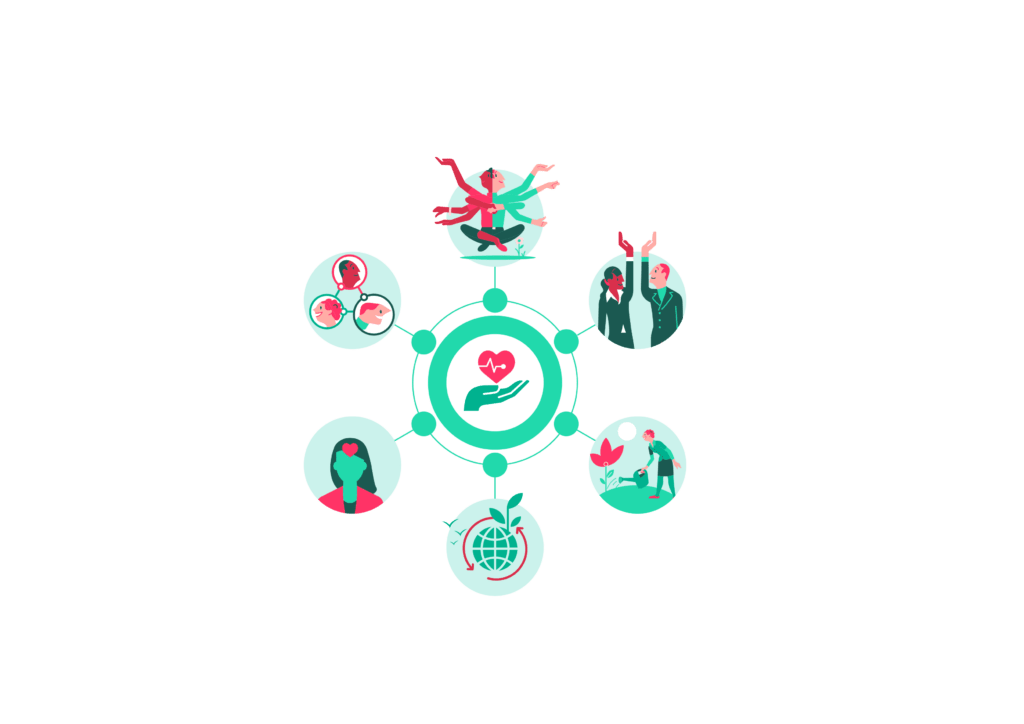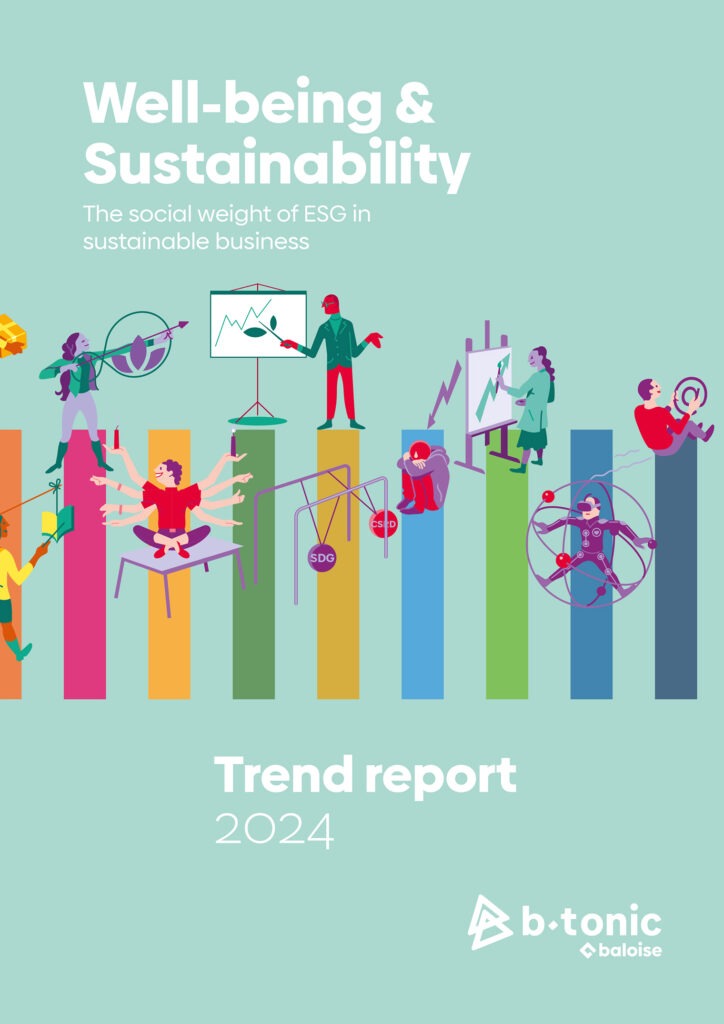There’s a new term: ‘People Sustainability’. This term is focused on improving employees’ well-being, sustainable entrepreneurship and creating a positive impact on society. The intersection of these three aspects is crucial for a successful sustainability strategy. Not only does it contribute to improved ESG reports, but it also contributes to improved business performance, employees’ well-being and social sustainability of an organisation.
Winning thanks to ‘people sustainabilty’?
- The concept of ‘people sustainability’ is located on the intersection of employee commitment, empowerment and sustainable entrepreneurship.
- It is defined as the ethical and honest treatment of people within an organisation.
- A sustainability strategy for employees helps to optimise the ESG reporting and business performance and to improve people’s lives.
- Upskilling of entrepreneurs and employees, taking responsibility for the supply chain and treating employees and their potential as valuable sources.
Indeed, the last few years there has been an incredible shift at work. The revolution of hybrid working was caused by COVID. But thanks to technological progress, the transition to the remote office was nearly seamless. Although the instruments were there to facilitate this transition, policy and approach of HR management lagged behind. Company transformation is not only about new technology. There has to be an adjusted approach that keeps technology, processes and people in mind.
People sustainability in light of 6 pillars:
- Diversity, equality and inclusion (DE&I)
- Well-being and balance
- Trust and transparency
- Health and safety
- Empowerment and growth
- Societal goals

People sustainability in three steps:
- Upskilling employees
By estimation there will be 85 million vacancies world-wide due to a lack of the right skills. Organisations can ensure that employees feel more committed by prioritising people and letting them develop through upskilling and reskilling. That way, they will be better equipped to grow as the company develops.
- Attention for the employee in the whole ecosystem
Governments and other regulating authorities demand more and more that companies take responsibility for the way employees are treated in their ecosystem.
Technology is essential to comply with the regulation demands for the supply chain. Thanks to the increased transparency of data companies can look into their direct and indirect suppliers and look who protects both people and environment. With this level of visibility, companies can lessen audits and improve their direct and indirect societal, economic and environmental impact.
- Ensure a human-centred approach of the business world
Companies focus more and more on a sustainable well-being policy. And each transformation begins and ends with people. People implement new technologies, develop new company models and lead crucial initiatives. Moreover, organisations with a people-centred approach are more resilient, competent, innovative and motivated to realise our collective sustainability goals.
People-centred
Even now organisations are dealing with shrinking budgets and rising inflation, the most important thing is employee commitment. Especially in the current uncertain times, attention to employees’ well-being pays off. In particular when it comes to productivity, collaboration and motivation.
Recent research by SAP shows that over 86% of managers think that investing in people sustainability can lead to positive economic and ecological sustainability results.
A McKinsey report indicates that 83% of C-suite leaders expect ESG programmes will contribute more to shareholder value in five years than they do now. So by putting people at the centre of the company strategy, innovation, resilience and collaboration improve and accomplishments and progress accelerate.
With the People Sustainabillity Scan, B-Tonic identifies the degree of workability in your organisation. This is fully in line with all 17 Sustainable Development Goals of the United Nations (VN SDGs).





